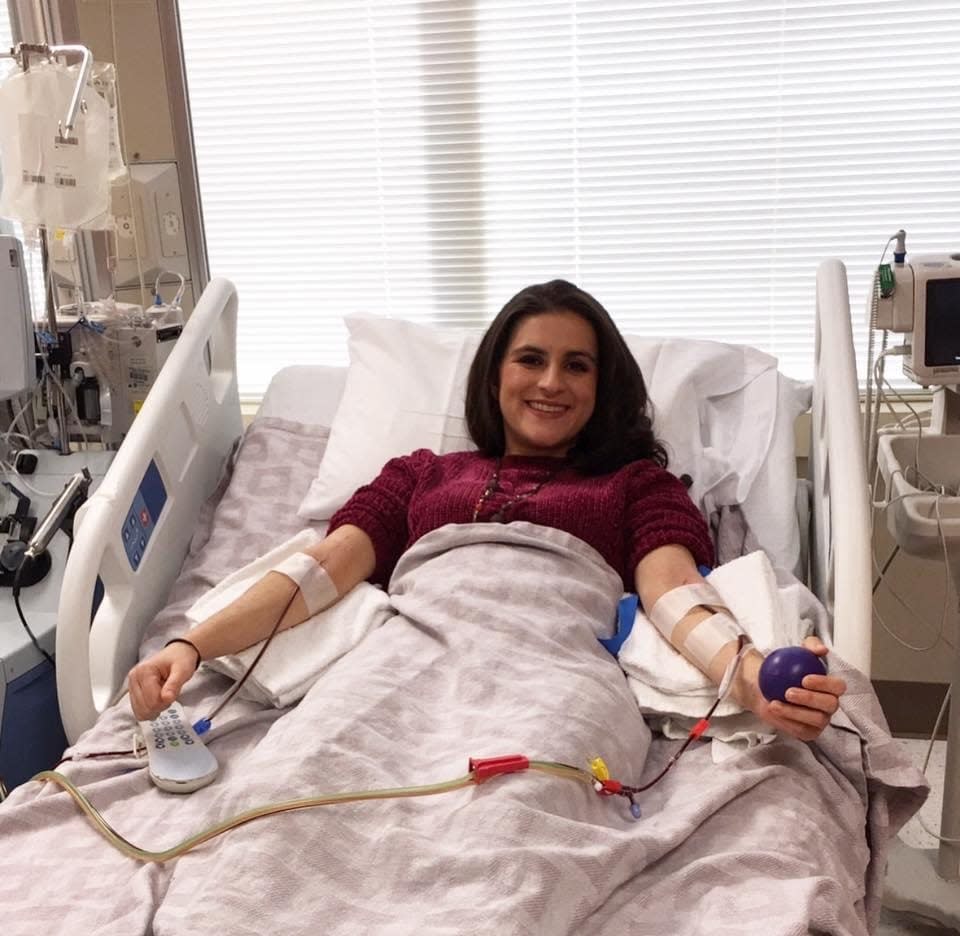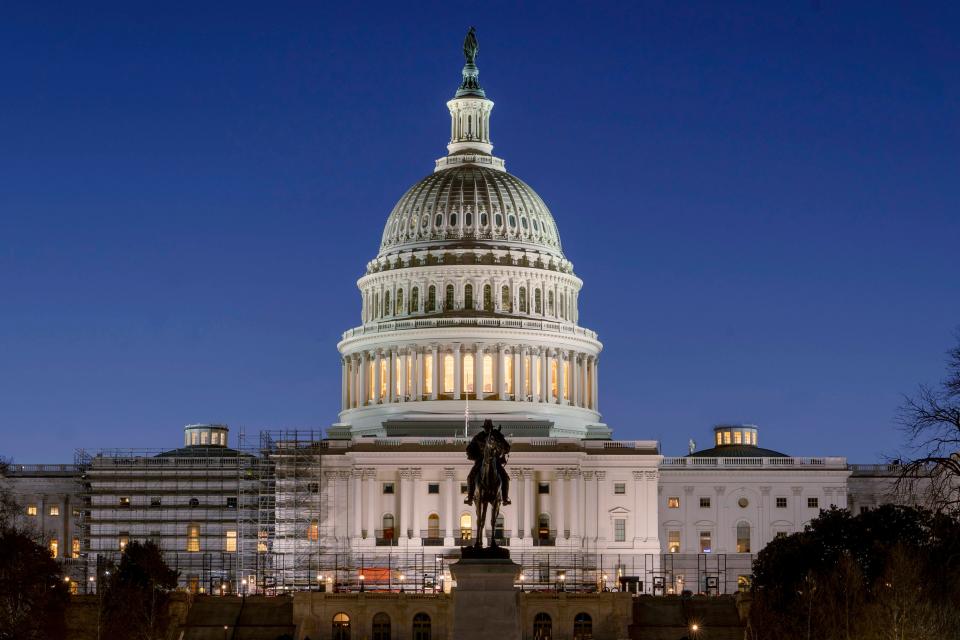Alabama woman asks Congress to increase funding for bone marrow transplant program
Dorothea Staursky, a Birmingham native in health administration, realized how many factors can impact patients’ access to bone marrow transplants about five years ago, and she was stunned.
A patient’s likelihood of finding a matching donor on the registry ranges from 29% to 79%, depending on ethnic background. On top of that, people who live in rural areas often have to travel for the testing required to match them with a donor.
With her Greek heritage, Staursky registered for the National Marrow Donor Program in 2018 and became involved in advocacy work with the program. A few months later, she was able to donate her bone marrow to a father of two young children who suffered from a rare blood disease.
Now, she is advocating for transplant access at a magnitude she never thought would be possible.
Staursky stood in front of members of Congress in Washington, D.C. on Thursday morning to ask for a $2 million funding increase for the C.W. Bill Young Cell Transplantation Program. Specifically, she addressed the Appropriations Subcommittee on Labor, Health and Human Services, Education and Related Agencies.

“I'm honored and humbled to have that opportunity to not only share my story, but also to share the incredible and positively impactful work that the program does and how it saves lives,” Staursky said. “Congress has always been a champion for us in that they've been long standing supporters of the National Marrow Donor Program, and I'm hoping through their additional support that we can continue to break down any kind of barriers to care that may exist and then ultimately save more lives.”
The U.S. Health Resources and Services Administration estimates that around 18,000 people need bone marrow transplants annually. These include people of all ages who have leukemia, lymphoma, sickle cell anemia and other inherited metabolic or immune system disorders.
National Marrow Donor Program leaders say they will prioritize boosting targeted donor recruitment efforts, increasing access to transplants in traditionally underserved communities and innovating new treatments with the additional funding.
One of their goals is to expand a pilot program that they launched in Alabama in 2019 called HLA Today. It provides test kits to doctors in small communities so they can test patients to see if a family member or unrelated adult donor is a match for a bone marrow transplant — no travel required.
“Limitation to access (for bone marrow transplants) includes geographic distance, availability of health insurance and financial and caregiver status,” Dr. Omar Alkharabsheh said. “When match-related donor is not an option, HLA testing at diagnosis through the NMDP has expedited the process of a donor search for high-risk malignancies at close-by centers.”Alkharabsheh works for the Mitchell Cancer Institute at the University of South Alabama, and he was the first person to use the HLA Today testing kit back in 2019.

“Having that information accessible early on in a patient's journey allows the doctors and the patients to make treatment decisions faster. That can help to save a patient's life and have better outcomes overall,” Staursky said. “One of our key focuses is on our rural communities. Rural communities - of course in Alabama, but also across our country - are the heartbeat of our country.”
According to the National Marrow Donor Program, this kind of early testing is associated with a 37% increase in two-year survival for patients who receive a transplant. The two-year mark is a key indicator of transplant success.
Since beginning in Alabama, HLA Today has expanded across 29 states, but the group hopes to build the program out across the entire country.
“We really want to focus on those communities because unfortunately, not everyone has the same opportunity to find a life-saving match for a bone marrow transplant,” she said.
Staursky encourages everyone who is able to join the Be The Match Registry as a potential donor, and she hopes people will write to their Congressional representatives asking for them to support Be The Match.
Hadley Hitson covers the rural South for the Montgomery Advertiser and Report for America. She can be reached at hhitson@gannett.com. To support her work, subscribe to the Advertiser or donate to Report for America.
This article originally appeared on Montgomery Advertiser: Alabama woman asks Congress for bone marrow transplant program funds

